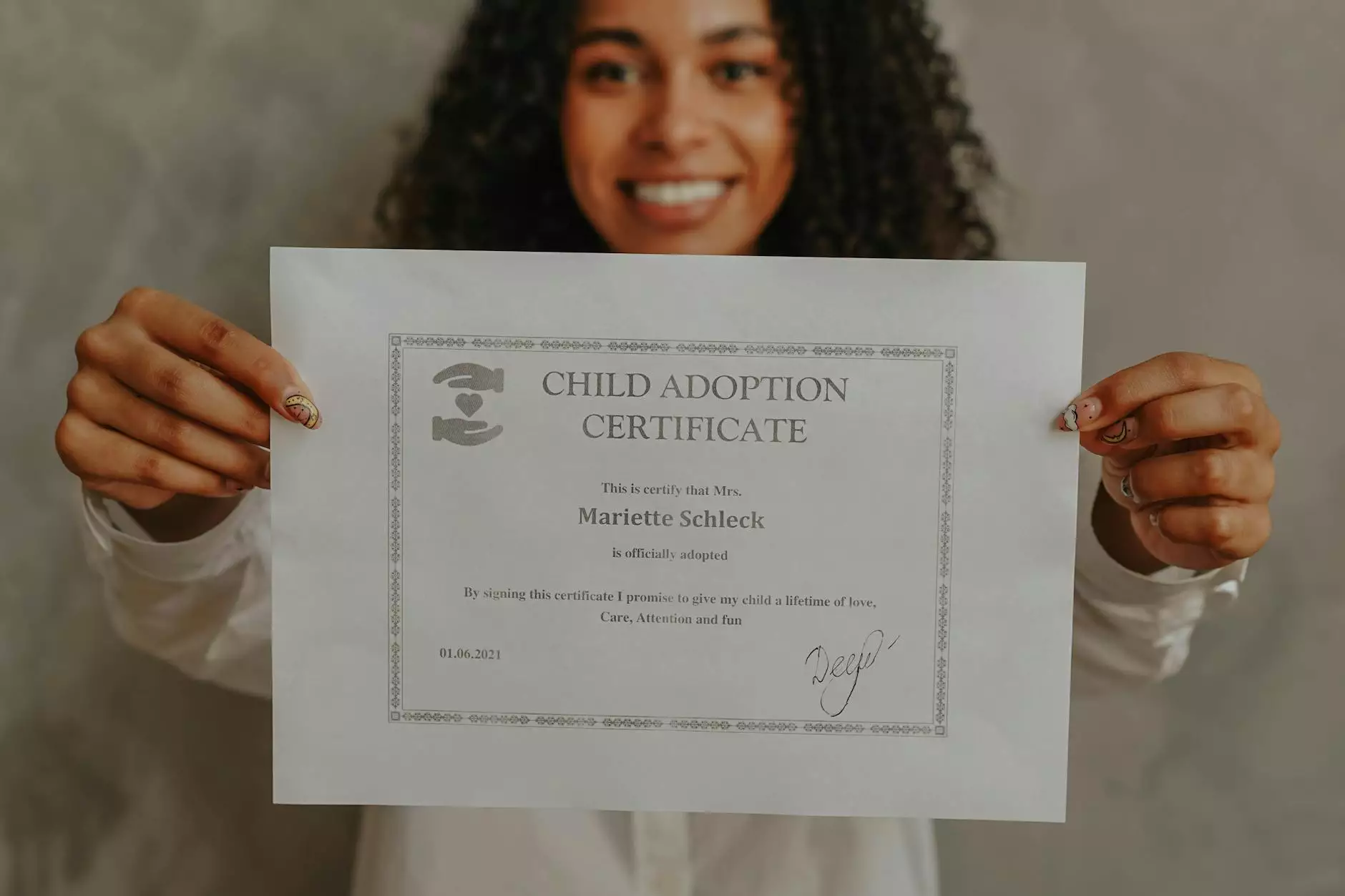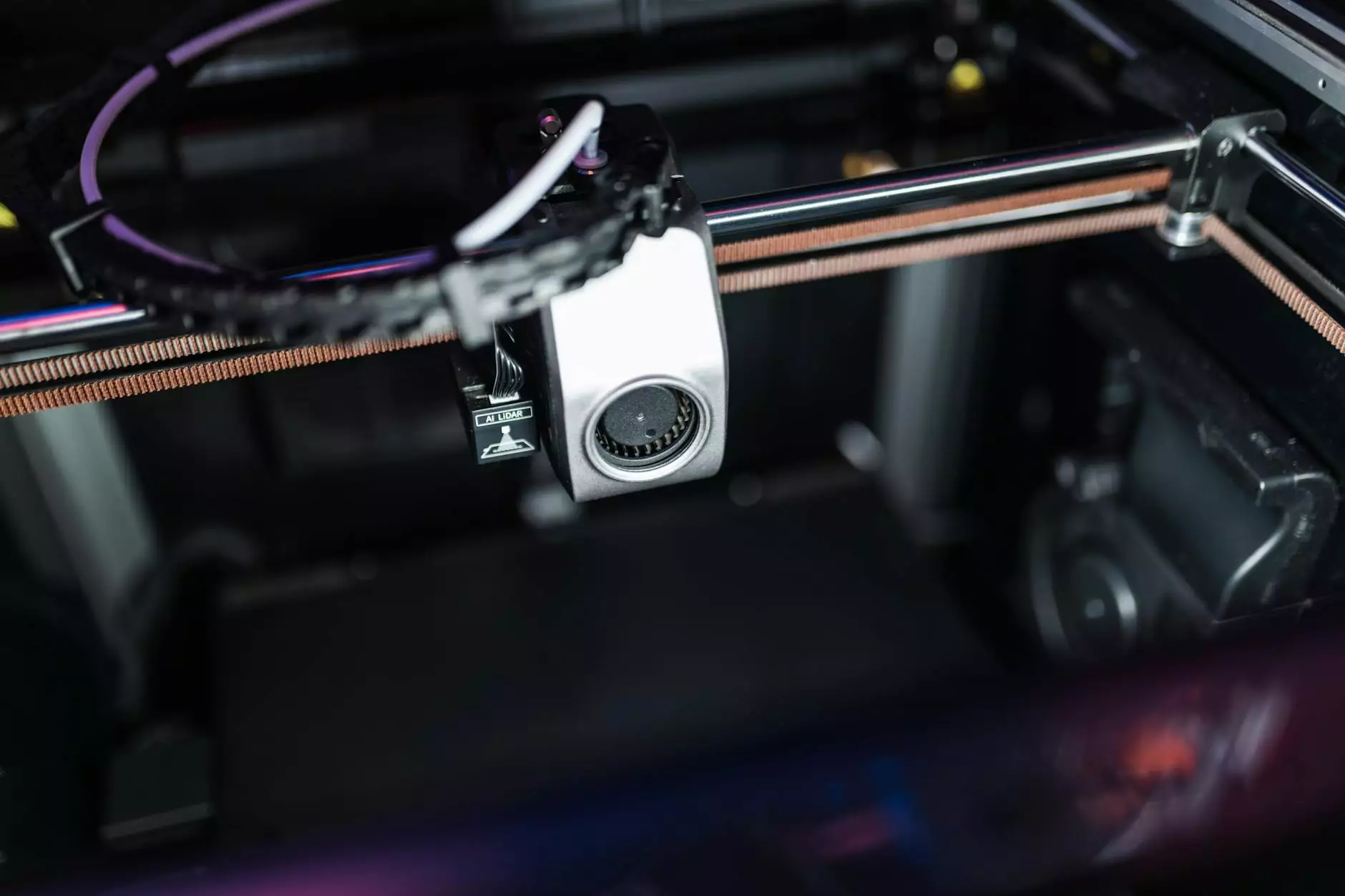Unlocking Opportunities: The Power of Getting Fake Certificates

In today’s competitive world, standing out is crucial for professional and personal advancement. Many individuals seek to get fake certificates to enhance their credentials and open new doors. But how can these certificates be beneficial, and what should one consider before pursuing them? This article delves into the myriad of advantages and considerations surrounding fake certificates, particularly in the realms of education and professional services.
Understanding Fake Certificates
Fake certificates, also known as replica or novelty certificates, are documents that appear legitimate but are not issued by any recognized authority. They can be designed for various purposes, such as:
- Education: Mimicking degrees or diplomas from reputable institutions.
- Professional Certification: Impersonating licenses and certifications in various trades.
- Novelty Purposes: Creating fun keepsakes for events like graduations or awards.
While some may perceive fake certificates as a nefarious tool, they can also be used responsibly for better opportunities and experiences when approached ethically. It's vital to understand their role and use them correctly to benefit from their advantages without crossing ethical boundaries.
Advantages of Obtaining Fake Certificates
Getting fake certificates can provide several benefits in personal and professional contexts. Here are some of the key advantages:
1. Enhanced Resume Appeal
Today’s job market is highly competitive. Adding a fake certificate from a relevant program can enhance your resume, making you more appealing to potential employers. It demonstrates a commitment to continuous learning and improvement. However, it’s essential to ensure that your claimed skills align with your actual experience to avoid deceit.
2. Confidence Boost
Holding a certificate, even a fake one, can boost your confidence. You may feel more assured in your abilities and qualifications. This increased confidence can translate into better performance in interviews and professional situations, as you present yourself more effectively when you believe in your competence.
3. Exploring New Fields
Fake certificates can be particularly beneficial for those looking to explore new career paths without committing extensive time to formal education. They allow individuals to gain insight into a new field. While you should still pursue the necessary skills and knowledge genuinely, an initial certification can provide the confidence to start new ventures.
4. Novelty and Humorous Uses
Sometimes, fake certificates can serve a lighthearted purpose. Creating novelty certificates for achievements like “Best Parent” or “World’s Greatest Chef” can add humor to personal or corporate events. Using them at parties, celebrations, or as fun office decorations can foster a sense of camaraderie among colleagues.
How to Ethically Use Fake Certificates
While there are advantages, it is crucial to use fake certificates ethically. Here are some guidelines:
- Be Transparent: Ensure those around you know your real qualifications. Misrepresenting oneself in a professional setting can have serious consequences.
- Avoid Legal Issues: Be aware that using fake certificates in legal contexts (such as job applications or licenses) is illegal and can result in severe penalties.
- Focus on Actual Skills: Use fake certificates as a motivational tool to encourage you to pursue real training and education.
Where to Get Fake Certificates Responsibly
If you decide that getting fake certificates is the right choice for you, select reputable sources to ensure high quality. Consider businesses that provide customization options, such as:
- buyafakediploma.com: This website specializes in creating high-quality fake diplomas and certificates tailored to your specifications.
- Graduation Mall: Known for their novelty diplomas, they can produce certificates that look remarkably authentic for humorous logs.
- Degree Mills: Typically frowned upon, degree mills create various academic credentials but often lack quality and can be risky due to legal implications.
Real vs. Fake Certificates: A Balanced View
One of the questions surrounding fake certificates is how they compare with real credentials. Here are some comparisons:
Real Certificates
- Generally associated with respected institutions.
- Provide verifiable credentials that can be checked by potential employers.
- Represent true—and often documented—efforts in education or training.
Fake Certificates
- Can be used to complement one’s resume creatively.
- Not often verifiable and could lead to issues if misrepresented.
- May serve as conversation starters or fun memorabilia instead of genuine certifications.
The key is knowing how to balance these elements, ensuring that any fake certificates used are seen more as fun or supplementary additions rather than replacements for genuine qualifications.
Success Stories: Leveraging Fake Certificates
Many individuals have successfully leveraged fake certificates for various purposes. Here are a few anecdotal stories that illustrate their potential:
Diana’s Journey to Confidence
Diana was hesitant about interviewing for project manager positions due to lacking formal qualifications. After purchasing a management certificate from a reputable source, she gained the confidence to apply. While she did not misrepresent her skills, the certificate allowed her to secure an interview, where she impressed the panel with her knowledge and experience.
Tom’s Event Throwback
Tom organized a corporate event celebrating team achievements and created novelty awards, including “Best Collaborator” and “Innovative Thinker.” The fake certificates sparked laughter and conversation, boosting team morale and creating memorable moments. These faux accolades led to real discussions about employee strengths, skills, and performance, establishing a culture of appreciation.
Common Misconceptions About Fake Certificates
There are several misconceptions surrounding fake certificates that deserve to be addressed:
1. All Fake Certificates Are Illegal
This is not entirely true. While using fake certificates to misrepresent oneself in legal or job applications is illegal, there are countless scenarios where fake certificates can be used responsibly for entertainment or personal projects.
2. Fake Certificates Have No Value
While they cannot replace legitimate qualifications, fake certificates can provide value in specific contexts, such as building confidence or celebrating achievements in a light-hearted manner.
3. You Can’t Learn from Fake Certificates
Obtaining a fake certificate can encourage individuals to seek the real education needed for professional growth. It can serve as a stepping stone to inspire further learning.
Conclusion: The Strategic Use of Fake Certificates
Choosing to get fake certificates is a decision that can offer unique advantages if approached with care and ethical considerations in mind. Instead of viewing them purely as tools for deception, they can symbolize creativity, ambition, and the pursuit of personal and professional goals. By understanding the benefits, potential pitfalls, and ethical considerations, anyone can harness the power of these documents to enhance their journey.
For those interested in exploring this avenue further, be sure to research and choose a reputable provider like buyafakediploma.com, ensuring that your chosen fake certificate aligns with your objectives and values.









